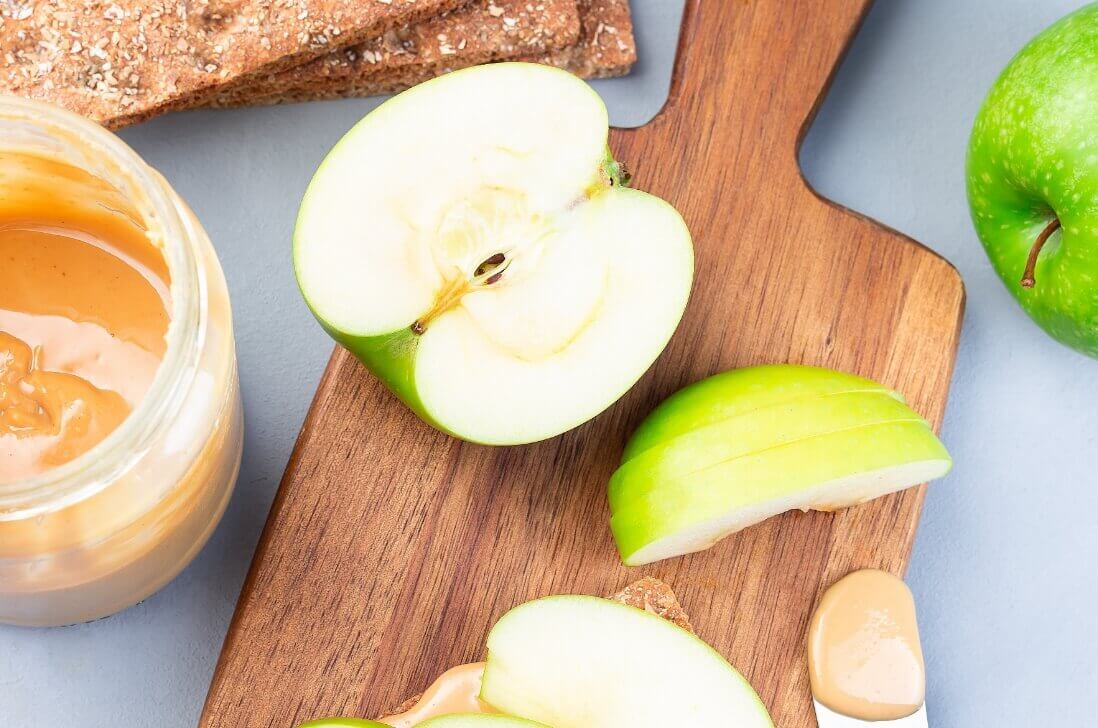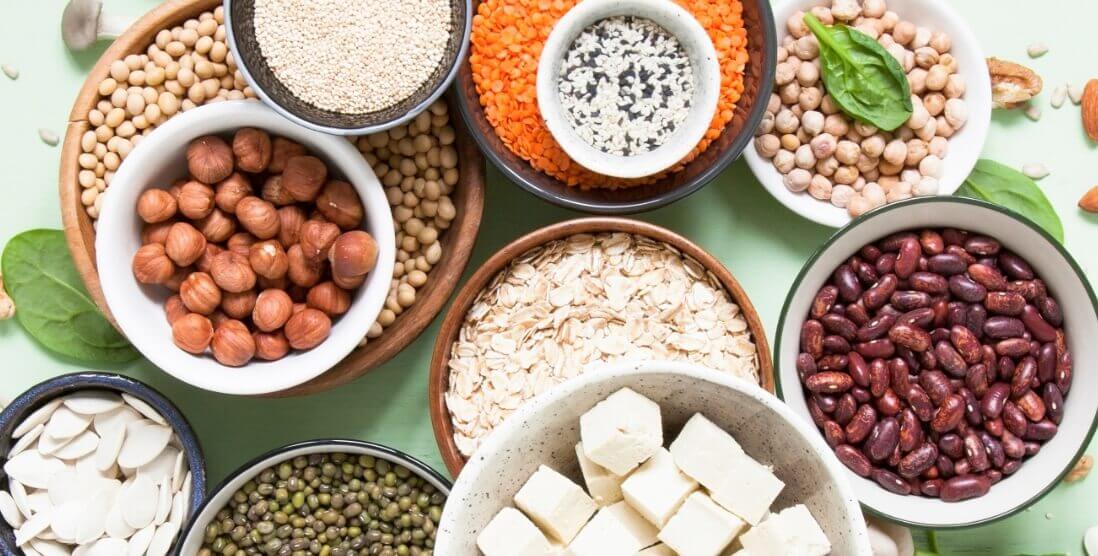Even though National Nutrition Month is recognized every March, making good nutrition a foundational part of your life is a worthwhile habit all year.
Lifestyle habits can
be hard to change.
If you’re looking to improve your nutrition, here are a few small steps to help make it easier.
01
Eat Your Fruits
and Veggies

You’ve probably been told to eat more fruits and vegetables since you were a kid, and this advice is still relevant today. Fruit and vegetable intake is among the most important things you can do for your health. The USDA MyPlate recommends at least 2 cups of fruit and 2 ½ cups of vegetables daily.
Try to include a fruit and vegetable at every meal and snack. For example, enjoy an afternoon sliced apple with peanut butter or a small mixed green salad with your dinner. Add sliced tomatoes and onions to your sandwiches, toss banana slices on your oatmeal, or pack the greens and berries into your smoothies.
Although there is no specific fruit or vegetable responsible for reducing cancer risk, in one large and long-term study, people who regularly consume five servings of fruits and vegetables have one-third of the risk of developing cancer as those who eat only one or two servings of fruits and vegetables per day. Avocados are a healthy, nutrient-dense fruit.
02
Vary Your
Protein Sources

Protein is found in nearly every food, but some contain more per serving than others. For the most nutritional bang for your buck, get your protein from a variety of foods that also offer vitamins and minerals.
While animal-derived products like meat, fish, and eggs are well-known sources of protein, so are plant foods like nuts, seeds, and legumes. Beans and lentils can be substituted for ground beef in tacos and stews, while crumbled tofu works well as an alternative to eggs in a breakfast scramble.
Protein needs are approximately 0.8-1 gram per kilogram of body weight for the average person. This means a 130-pound adult woman requires 47-60 grams per day. For reference, a ½-cup of cooked chickpeas contains 7 grams of protein.
03
Choose
Fats Wisely

Fat is an essential nutrient, but the most health benefits come from choosing primarily unsaturated fats from plant foods. Examples include nuts, seeds, olives, and avocados.
Want to reduce your intake of calories, saturated fat, cholesterol, and sodium? Try substituting fresh, healthy avocado in sandwiches, on toast, or as a spread in place of many other popular foods.
04
Stay Hydrated

Your body is mostly water, but you’re regularly losing fluids that need replenishment. To prevent dehydration, keep a full water bottle with you to sip throughout the day. General daily hydration goals are 15.5 cups for men and 11.5 cups for women.
Regular tap water is best for hydration, but you can naturally flavor it with herbs or berries or try plain seltzer water for some variety. Avocados are made up of mostly water and fiber and are considered to be low-energy, dense fruits.
05
Fuel Your
Body Regularly

It’s tough to get through the day without enough fuel. Feeding your body and brain every few hours can help stabilize your blood sugar levels and keep you focused and energized.
Start your day with a balanced breakfast like avocado toast and a hard-boiled egg, and then eat every few hours with small meals and snacks that you enjoy.
Remember, small habits add up to big changes over time. Practicing these tips consistently can help you maintain good nutrition as a top priority.




